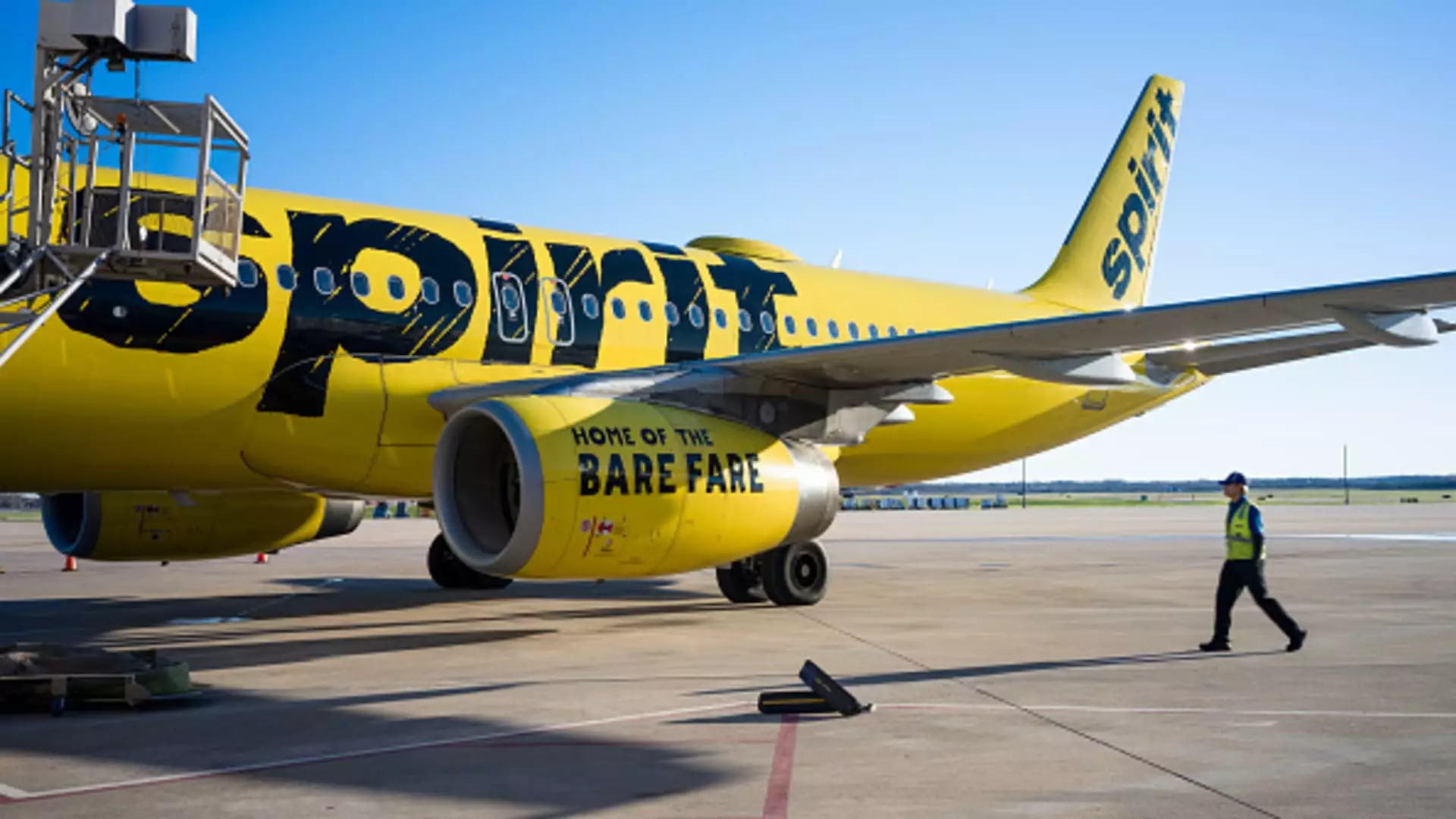In a race against time and financial hardship, Spirit Airlines announced on Friday that it had successfully negotiated an extension with its credit card processor, pushing its debt refinancing timeline to December. This decision came just hours before the initially set deadline, underscoring the urgency of the airline’s deteriorating financial situation. The revelations from the company, disseminated through a late Friday filing, indicate that Spirit drew down its entire $300 million revolving credit facility earlier in the week, a move that highlights the airline’s need for immediate liquidity. By the end of the year, Spirit anticipates maintaining slightly over $1 billion in cash reserves, indicative of cash preservation measures undertaken in the face of potential insolvency.
Spirit’s precarious financial position is further accentuated by ongoing discussions with holders of its senior secured notes due in 2025 and convertible senior notes maturing in 2026. According to the same filing, the airline mentioned “active and constructive discussions,” but the ambiguity surrounding these talks raises questions about the feasibility of finding a sustainable solution. The airline’s stock market performance reflects its distress; closing on Friday at a record low, shares plummeted approximately 3%, hovering below $1.50 per share. Such a significant downturn is alarming for investors and stakeholders alike, considering the stock’s staggering decline of over 90% throughout the year and nearly 40% drop just in October.
The financial strain has prompted Spirit Airlines to make harsh operational changes—including furloughing workers and scaling back flight schedules. The decision to defer aircraft deliveries further exacerbates the airline’s capacity challenges. Aircraft groundings, primarily due to issues related to a Pratt & Whitney engine recall, have hindered the airline’s ability to operate efficiently and meet passenger demand. As travel continues to rebound post-pandemic, Spirit’s operational limitations pose a risk of losing market share to competitors who are more agile and better equipped to handle the resurgence in air travel.
In a significant blow to its strategic plans, Spirit’s attempt to be acquired by JetBlue Airways was abruptly derailed when a federal judge blocked the merger on antitrust grounds. This setback has compounded Spirit’s troubles and left it vulnerable in a fiercely competitive market. Industry analysts speculate whether this turn of events might prompt the airline to consider Chapter 11 bankruptcy as a viable option. The uncertainty surrounding Spirit’s future raises pressing questions about its management’s ability to navigate these turbulent waters without resorting to more drastic measures.
While Spirit Airlines has managed to prolong its refinancing efforts, the underlying issues persist, prompting skepticism about its long-term viability. Stakeholders are left grappling with the uncertainty of whether upcoming negotiations will yield favorable results or exacerbate the challenges facing the airline. With prospects growing dim and the airline’s operational capabilities under scrutiny, the question remains: Can Spirit Airlines transform its current adversity into an opportunity for reinvention, or is it destined for a more tumultuous fate?

Leave a Reply